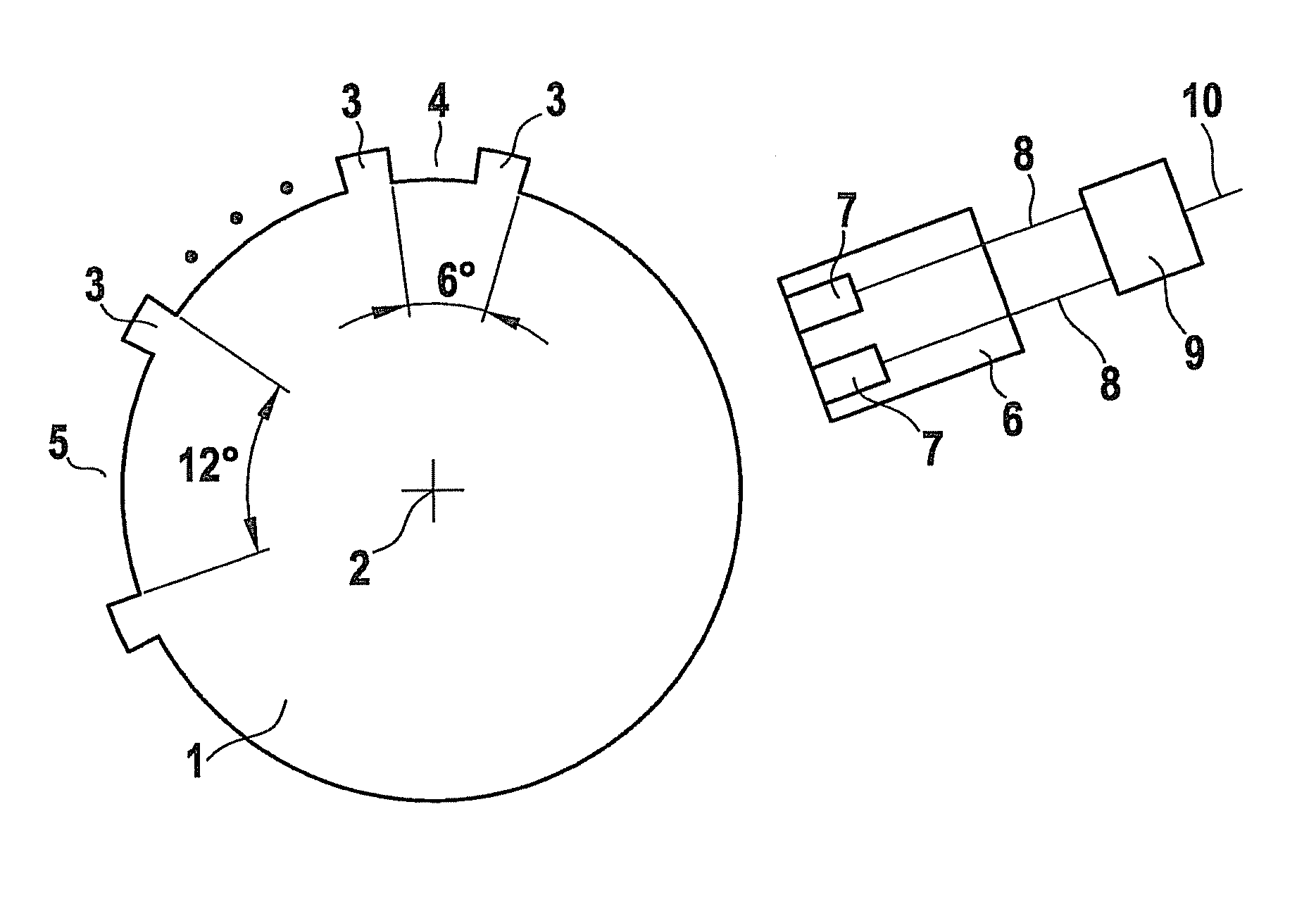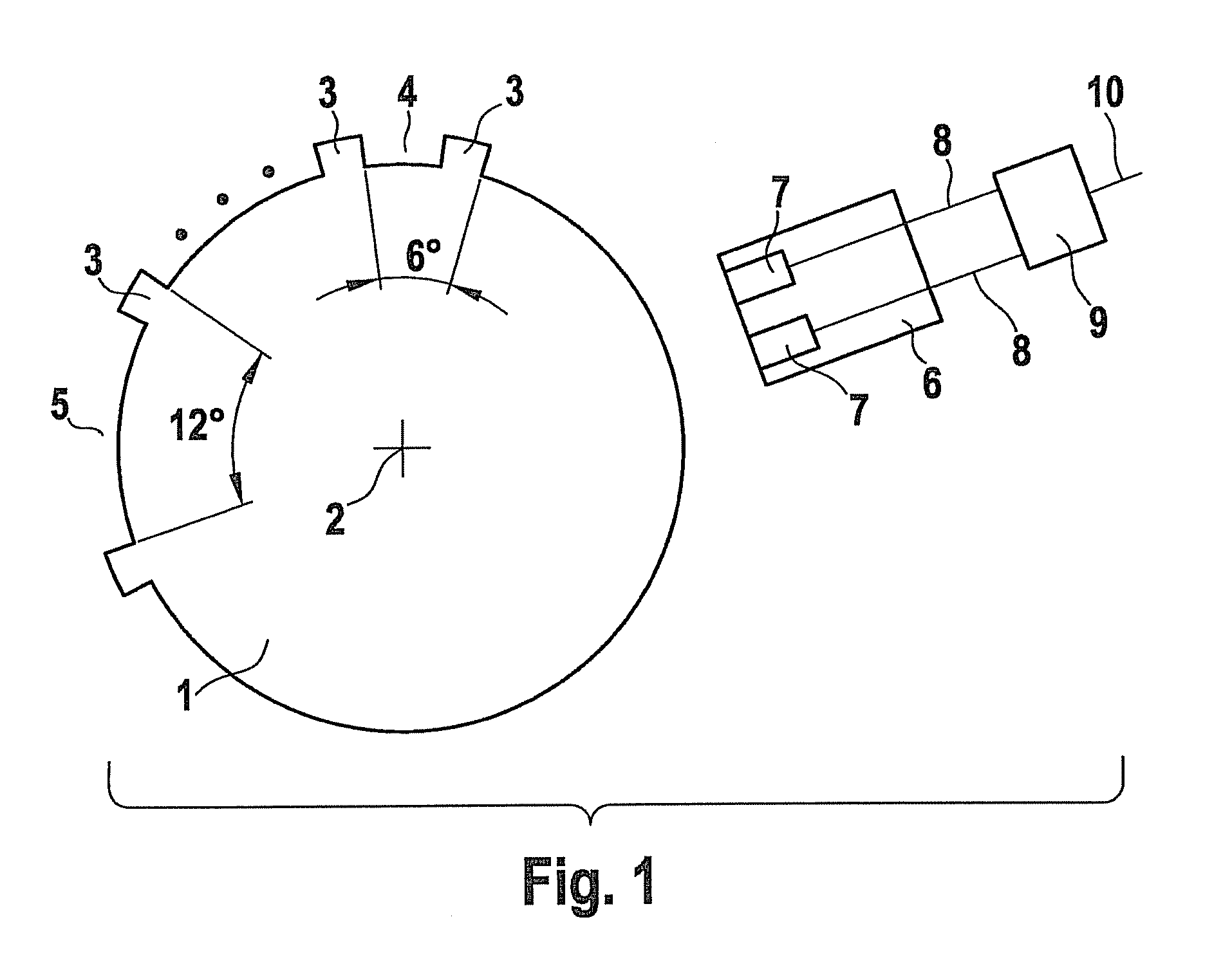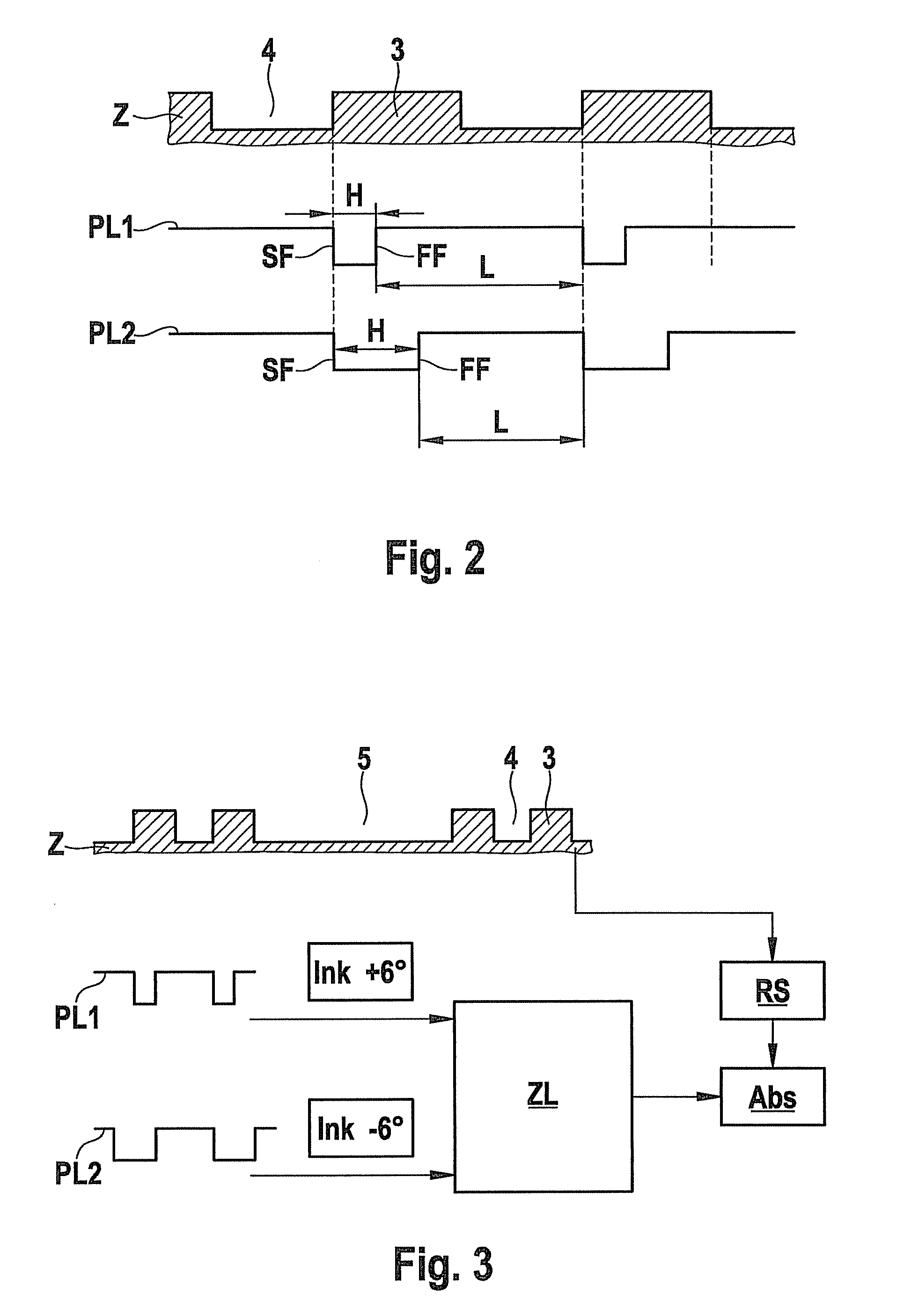Method for incrementally ascertaining a rotation angle of a shaft
a technology of incremental ascertaining and rotation angle, which is applied in the direction of digital computer details, electrical control, instruments, etc., can solve the problems of systematic error in incremental angle determination, inability to reliably determine the absolute position of the crankshaft, and inability to recognize the direction of rotation of the current internal combustion engine sensor, etc., to achieve accurate determination of the absolute rotation angle of the sha
- Summary
- Abstract
- Description
- Claims
- Application Information
AI Technical Summary
Benefits of technology
Problems solved by technology
Method used
Image
Examples
Embodiment Construction
[0018]FIG. 1 shows a schematic drawing of a conventional sensor wheel 1, which is connected to a crankshaft of an internal combustion engine, not depicted here, and rotates about an axis 2 at a rotation of the crankshaft. Sensor wheel 1 has sensor wheel marks (markings), which are formed by an alternating arrangement of teeth 3 and tooth gaps 4. The distance between consecutive pairs of teeth 3 and tooth gaps 4 is 6°. Teeth 3 and tooth gaps 4 may extend over a same angular range of 3°, but they may also be pitched unevenly, for example, by a tooth 3 covering an angular range of 2° and a tooth gap 4 covering an angular range of 4°. A sensor wheel gap 5 is formed by omitting one tooth 3, thus forming a sensor wheel gap 5 having an angle of 12°.
[0019]A sensor 6 is associated with sensor wheel 1. Sensor 6 includes two sensor elements 7, which may be Hall elements, inductive sensors, or the like, for example. Sensor elements 7 deliver electrical signals via signal lines 8, from which a d...
PUM
 Login to View More
Login to View More Abstract
Description
Claims
Application Information
 Login to View More
Login to View More - R&D
- Intellectual Property
- Life Sciences
- Materials
- Tech Scout
- Unparalleled Data Quality
- Higher Quality Content
- 60% Fewer Hallucinations
Browse by: Latest US Patents, China's latest patents, Technical Efficacy Thesaurus, Application Domain, Technology Topic, Popular Technical Reports.
© 2025 PatSnap. All rights reserved.Legal|Privacy policy|Modern Slavery Act Transparency Statement|Sitemap|About US| Contact US: help@patsnap.com



